The views expressed in our content reflect individual perspectives and do not represent the authoritative views of the Baha'i Faith.
God is not unjust; he will not forget your work and the love you have shown him as you have helped his people and continue to help them. – Hebrews 6:10.
Each of you should use whatever gift you have received to serve others, as faithful stewards of God’s grace in its various forms. – 1 Peter 4:10.
The best of men are those who serve the people; the worst of men are those who harm the people. – Qur’an 59:9.
This is worship: to serve mankind and to minister to the needs of the people. – Abdu’l-Baha, Paris Talks, p. 177.
Let me tell you the true story of a friend of mine who wanted to serve others, and became a political leader in the process.
My friend, who shall remain nameless to protect his privacy, devoted his whole career to public service. He started out his professional life as an idealistic and altruistic teacher, because he felt that education could transform society. After he saw, firsthand, the poor conditions in America’s inner-city schools, he began working at the grass roots in a teacher’s union, hoping to find ways to improve those conditions. Union officials saw promise in him, and he quickly became one of the organization’s leaders. From that position, he decided to run for a non-partisan seat on the local school board. He won. Charismatic, intelligent and thoughtful, he did excellent work on that board, finding ways to improve the schools in his district and making a name for himself in the process.
Other people saw promise in him, and asked him to run for a vacant seat in his state’s legislature. He lost that initial campaign—but two years later he ran again, now experienced at funding and running a political race, and he won. In his early thirties, he became a newly-minted state legislator. He worked hard at the job, introduced crusading legislation that he thought would lead to more fairness and justice in education and society, and even got some of that legislation passed. On the heels of his success, and because of his boundless energy, his articulate advocacy for the less fortunate and his ability to get along with people from both political parties, his peers elected him to be the leader of the legislature. Suddenly, along with the governor of his state, he had become one of its two most powerful elected leaders.
At every step along the way, my friend faced more political pressure. The stakes got higher, and so did the critical nature of the decisions he was called on to make. He confided in me a little, saying that his job was like an intense pressure cooker, with constantly increasing demands on his time, his diplomacy and his ethics. He told me he faced incredibly hard decisions, his position as a leader embroiling him in a constant maelstrom of controversy. The tough decisions he made angered some and pleased others. He tried to do the best he could, but he soon found that well-funded, powerful lobbies—the business and industrial community, the unions, various economic interests and parties and wealthy individuals and groups—were targeting him for defeat in the next election. Why? One former supporter actually told him: “You’re too ethical.”
So I’ll make a long and complex story short, and simply say that my friend no longer holds political office. He may re-enter the fray someday, but for now he has decided to step away and work in the private sector. I asked him what he learned from the experience. He said, quoting Winston Churchill, “Democracy is the worst form of government, except for all the others.”
Certainly many western democracies, including the state and federal governments in my native United States, have much to recommend them—but some also have an enormous, corrupting susceptibility to the influence of moneyed forces. My friend tried, in that environment, to be an ethical catalyst for justice and equity—but at the top of the power pyramid in a large and diverse state, he found it difficult when confronted with the tremendous influence of various interest and pressure groups.
The Baha’i teachings acknowledge that reality, and praise leaders who fight it internally and externally:
The faults of kings, like their favours, can be great. A king who is not deterred by the vainglory of power and authority from observing justice, nor is deprived of the splendours of the day-star of equity by luxury, riches, glory or the marshalling of hosts and legions shall occupy a high rank and a sublime station amongst the Concourse on high. It is incumbent upon everyone to extend aid and to manifest kindness to so noble a soul. Well is it with the king who keepeth a tight hold on the reins of his passion, restraineth his anger and preferreth justice and fairness to injustice and tyranny. – Baha’u’llah, Tablets of Baha’u’llah, p. 65.
Government and public service, like all sectors of society, attract a wide range of human motivation. Some political leaders enter the field for selfish motives, and some enter it for selfless ones, attempting to serve humanity. Of course, no one can completely know the motivations of anyone besides themselves, so the Baha’i teachings counsel us to refrain from judging anyone:
All religions teach that we should love one another; that we should seek out our own shortcomings before we presume to condemn the faults of others, that we must not consider ourselves superior to our neighbours! We must be careful not to exalt ourselves lest we be humiliated. Who are we that we should judge? How shall we know who, in the sight of God, is the most upright man?
…The only division that is real is this: There are heavenly men and earthly men; self-sacrificing servants of humanity in the love of the Most High, bringing harmony and unity, teaching peace and goodwill to men. On the other hand there are those selfish men, haters of their brethren, in whose hearts prejudice has replaced loving kindness, and whose influence breeds discord and strife…
My hope is that in this enlightened century the Divine Light of love will shed its radiance over the whole world, seeking out the responsive heart’s intelligence of every human being; that the light of the Sun of Truth will lead politicians to shake off all the claims of prejudice and superstition, and with freed minds to follow the Policy of God: for Divine Politics are mighty, man’s politics are feeble! – Abdu’l-Baha, Paris Talks, pp. 147-150.
Next: The Shadow of a Just King


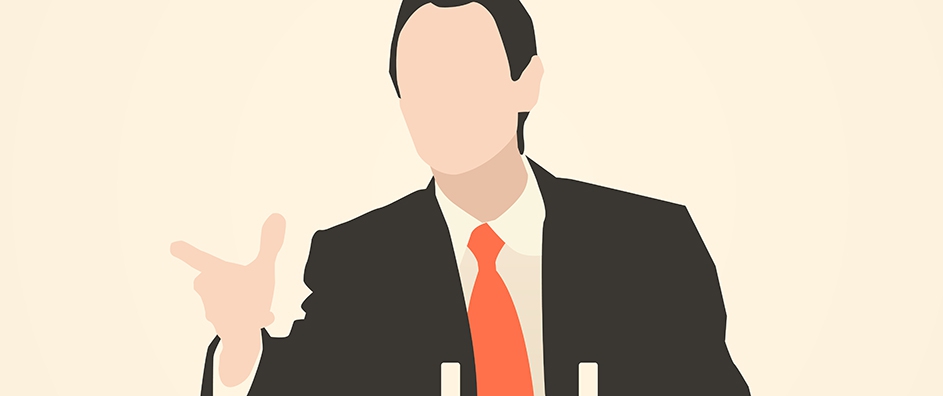

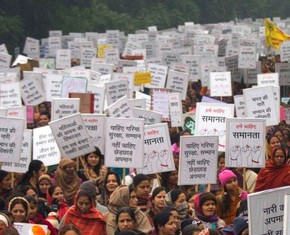


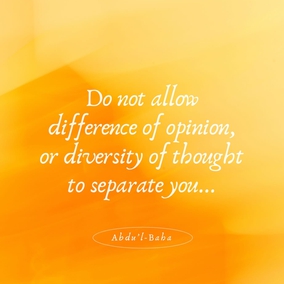
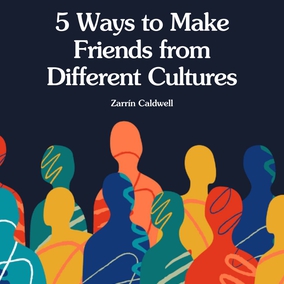
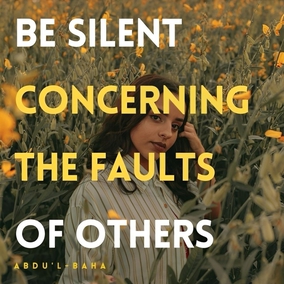






Comments
Sign in or create an account
Continue with Googleor